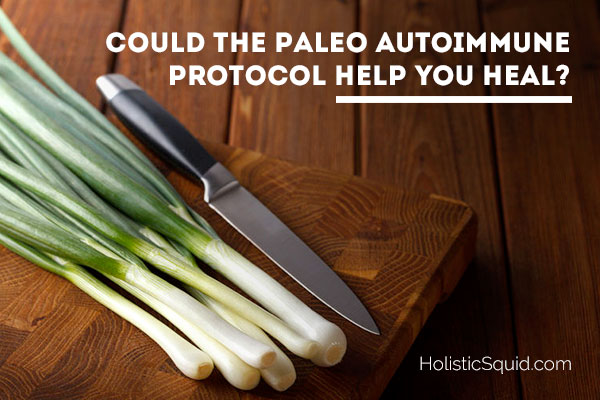
We've talked before about the health benefits of the paleo diet, and how it can – in some cases – save your life. Recently I learned a ton about the paleo autoimmune protocol, a more strict version of this way of eating that can be invaluable for healing from many complicated health conditions. In this post, Daphne fills us in on why and how to get started with AIP. ~Emily
There are more than 80 disease processes that are considered autoimmune diseases and the incidence of diagnosis is escalating. Some of the most common ones are Hashimoto's thyroiditis, celiac disease, rheumatoid arthritis, and type 1 diabetes.
While autoimmune diseases happen across many body organs and tissues, they are less about the organ being inflicted and more about the immune system response to what is going on in the body. You see, the immune system's job is to determine what is self and what is non-self. When it gets alerted about something in the body being non-self it has to determine if it's safe or dangerous. If it's dangerous the job is to attack. With autoimmune diseases, the immune system gets confused, thinking an organ is a non-self, a dangerous thing, and it attacks.
With more and more people being diagnosed with autoimmune conditions, and scant medical information about how to treat them, people are taking matters into their own hands. What better way to take control of what's going on in the body than through food. The paleo autoimmune protocol (AIP) is an eating plan geared toward decreasing the body's immune response, allowing healing to occur.
AIP ideal for people who are not getting the results you want or don't want to go the conventional route, typically involving medications. Though somewhat challenging to implement, the autoimmune protocol diet is very effective, especially for those who have multiple autoimmune diseases going on and you want to know what you are doing is making an impact.
How to get started with the paleo autoimmune protocol (AIP) diet
The autoimmune protocol can be simplified into the “5 R's” – removing any foods that could potentially cause inflammation and replacing with safe foods, repairing leaky gut that goes along with autoimmune disease, reinnoculating your gut with healthy microflora, and finally reintroducing foods to determine how your body reacts.
Remove
Remove these foods for a period of time from 30 days to 6 months, then they can be reintroduced slowly when the gut is repaired.
Food sensitivities – These are different for everyone, and they can wreak havoc on your body being able to heal itself.
Processed foods – I think it goes without saying, that processed foods do nothing to support your body.
Poor fats – These cause inflammation and include canola oil, corn oil, cottonseed oil, hydrogenated (trans) fats of any kind, safflower oil, soybean oil, and vegetable oil.
Grains – All grains and grain products (both glutenous and non-glutenous) have lectins in them that can cause damage to the lining of the intestinal wall, especially if it's already impaired. These include amaranth, barley, buckwheat, bulgur, corn, farro, kamut, millet, oats, quinoa, rice, rye, triticale, and wheat.
Beans/legumes – Similar to the lectins on grains, beans have lectins in them.
Corn – It's easy to forget corn is a grain (not a vegetable), and it's found in more than you can ever imagine. Aside from the more obvious foods such as corn chips, popcorn, high fructose corn syrup and the like; other foods to be cautious of are grits, hominy, polenta, tamales, and vegetable oil, citric acid, caramel coloring, and many other random ingredients. For a complete list of overt and hidden corn foods go here.
Soy – Like corn, soy has crept into our food supply in the most unsuspecting ways being called names like textured vegetable protein and lecithin. For a complete list of foods containing obvious and hidden soy go here.
Eggs – Egg whites are one of the most allergenic foods, affecting 2-3% of the population. Aside from allergies, eggs have an enzyme called lysozome which binds to various proteins and aids them to pass through the gut wall.
Nightshades – These veggies contain the compound solanine which contributes to leaky gut and stimulates an immune response as it leaks through the gut wall. They include: eggplant, white potatoes, tobacco, tomato, peppers: cayenne, chili, green, hot, paprika, pimento, red, tomatillo, jalapeno, and bell peppers (yellow, gold, green, red).
Nuts – Similar to grains and beans, nuts have lectins in them that can exacerbate the inflammatory process. Removal of all nuts (both whole and in their nut butter form) includes almonds, Brazil nuts, cocoa, hazelnut, peanuts (although technically not a nut), pecan, macadamia nuts, and walnuts.
Seeds – While there is mixed information about the role of seeds in autoimmunity the general consensus is to remove them initially. It also includes seed spices like anise, black pepper, caraway seeds, celery seeds, coriander, cumin, dill seed, fennel seed, fenugreek, mustard, and nutmeg as well as coffee.
Dairy – Two of the large proteins in dairy, casein and whey, are problematic for many people. The removal of all dairy, including cow, goat, and sheep is necessary.
Alcohol – Abstaining from all alcohol during the remove phase of the autoimmune paleo diet is critical to allowing the gut to heal.
Replace
So by now you're probably thinking, “Well what can I eat?” No worries, there are foods to replace much of the foods that have been removed. These foods are nutrient dense and will help to support, repair, and build up your body and immune system.
Vegetables & root veggies – All veggies are allowed with the exception of the nightshades.
Healthy fats – Including animal fats from clean sources (lard, beef tallow, duck fat, suet), avocado and avocado oil, coconut and coconut oil, olives and olive oil, and palm oil.
Meat, poultry, organs & fish – Ideally they would be from pastured animals, but at the least organic meats are necessary to prevent additional toxins into your system. Organ meats like heart, kidney, liver, and pate pack the punch with not only proteins, but a plethora of nutrients to aid and support our own organs. Oily fish (like wild caught anchovies, halibut, herring, mackerel, salmon, sardines, and tuna) have high levels of omega-3s we are often missing.
Fruit – Rich sources of fiber and phytonutrients.
Spices & herbs – Not only provide flavor to the foods we eat, but also have helpful medicinal properties. AIP approved: basil, bay leaves, chives, cilantro, cinnamon, cloves, dill, garlic, ginger, lavender, lemongrass, marjoram, mint, parsley, peppermint, rosemary, saffron, sage, sea salt, shallots, spearmint, tarragon, thyme, and turmeric.
Fermented foods – Introducing fermented foods reinocculates the gut (see below).
Reinoculate
The next step is to reinoculate your gut with probiotic-rich foods.
These foods come to us through the process of fermenting. Fermenting foods is a practice to add beneficial bacteria to a food by introducing or providing the best environment for lactic acid producing bacteria to grow. When we eat the foods, the bacteria gets transported to our gut bacteria helping to provide an environment that will aid in digestion, protect the gut, and produce vitamins for our own body to use.
Some fermented foods that have a variety of probiotics to reinocculate your gut with various beneficial bacteria include sauerkraut, fermented fruits and veggies, kombucha, and water kefir. See this post for more about fermented foods.
Repair
With all autoimmune diseases comes a leaky gut. Taking steps to repair your gut while you are giving your immune system a break can go a long way in the healing process.
Broths – The specific amino acids, glycine and proline, in prepared meat and bone broths have properties that are good for healing and sealing the intestinal lining. Both chicken broth and beef broth can be beneficial when consumed regularly.
Okra – The component of okra that is often thought to be slimy is also a healing component.
Cabbage & cabbage family foods – Cabbage comes from the mustard food family. These foods are high in sulfur that can be beneficial for gut healing. The veggies in this family are arugula, broccoli, bok choy, Brussel sprouts, cabbage, cauliflower, Chinese cabbage, collards, curly cress, daikon, horseradish, kale, kohlrabi, mustard greens, radish, rape, rutabaga, turnips, and watercress.
Aloe vera juice – The same aloe vera that is used for soothing sunburns is also useful in gut soothing and healing. It can be consumed as a beverage.
Slippery elm – Slippery elm is most often used in a tea form and is a healer for the gut.
Ginger – There are many ways to consume ginger and they are all beneficial.
Reintroduce
Once the gut is healed, adding removed foods back one by one will allow you to determine which foods may cause problems in the future. Unfortunately, some foods your body may never really agree with.
Reintroduce foods least likely to cause symptoms first. The foods least likely to cause issues when reintroduced are egg yolks, ghee, seeds and seed based spices, coffee, and butter.
Introduce foods slowly, eating the food 2 times for 2 days. This ensures you get an adequate amount of the food in your system, just in case the immune system is going to react to it.
1 new food every 4-5 days. It can take as long as 4-5 days before you notice how a food affects you. Introducing these foods slowly will allow you to determine if a food is causing an unwanted symptom.
If you have a reaction to a food that has been introduced, remove it (obviously), then wait for the immune system to settle down before reintroducing a new food.
While there is nothing easy about following the autoimmune protocol diet, understanding that it is only for a limited time and there are resources out there to help you with planning meals can make it palatable. Planning is key and knowing that you are doing the best for your body goes a long way in building a life for your future.
Real Plans, a meal planning tool created by Emily and her husband, is a great way to simplify the task of going AIP.
With over 600 AIP-friendly recipes, and a completely customizable program, you may even find your autoimmune protocol a little fun.
Click here to get Real Plans to help you master your autoimmune protocol diet
Daphne Olivier is a registered, yet unconventional dietitian who runs My Food Coach, her nutrition coaching practice. She has a passion for real food and how it affects the body. Daphne works with individuals and groups, in person and online.



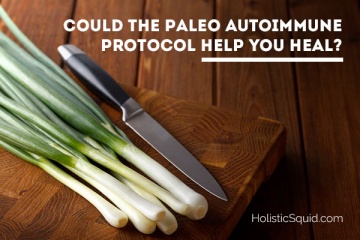


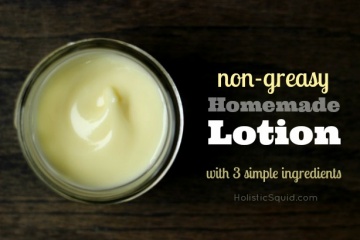


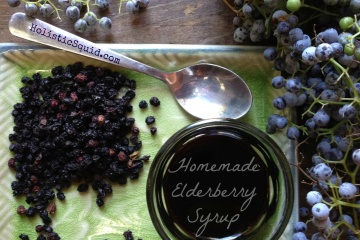
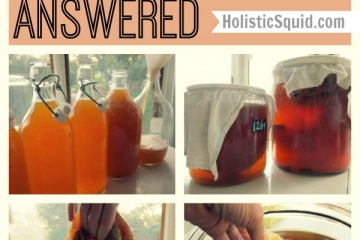
Leave a Reply